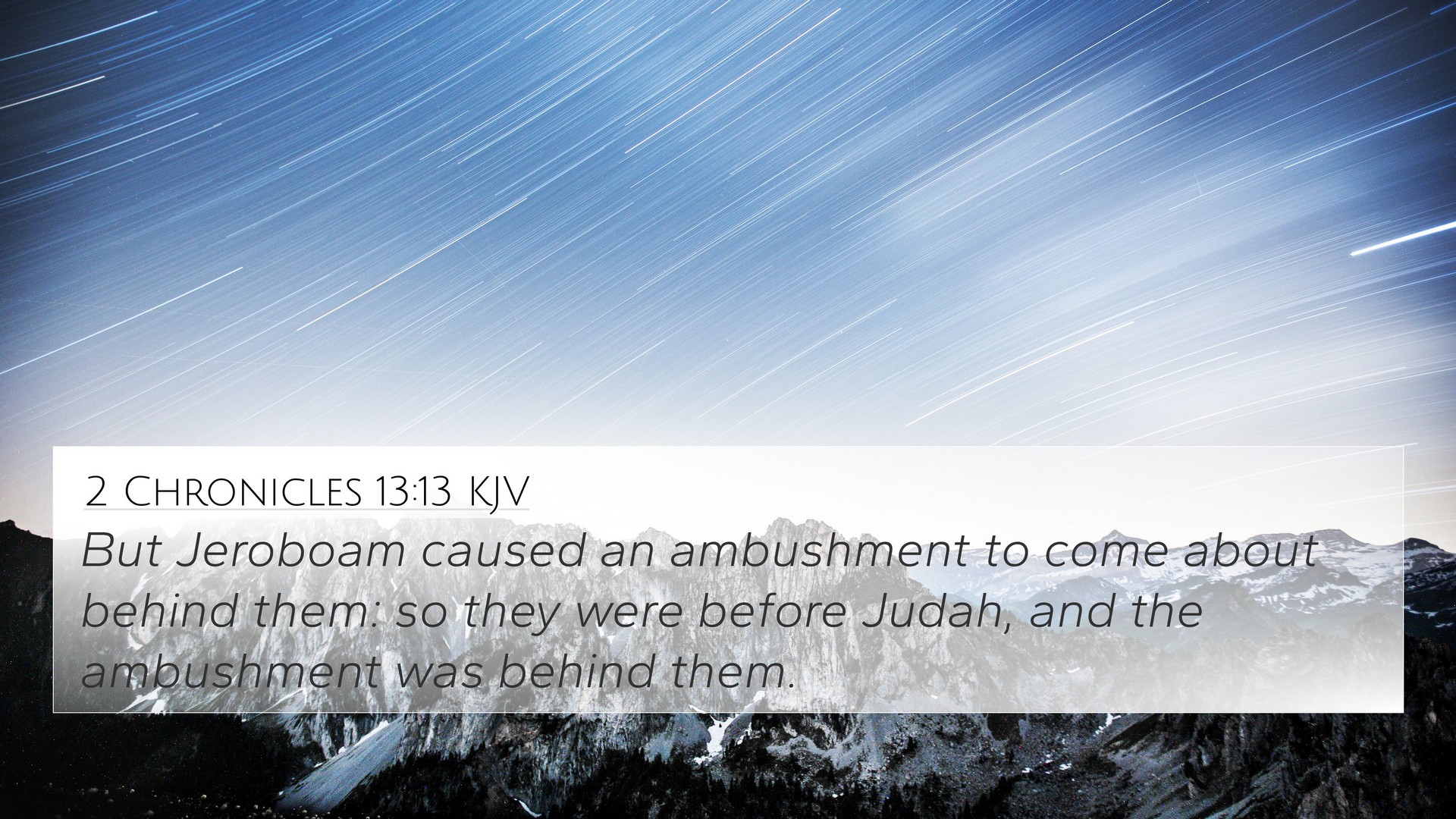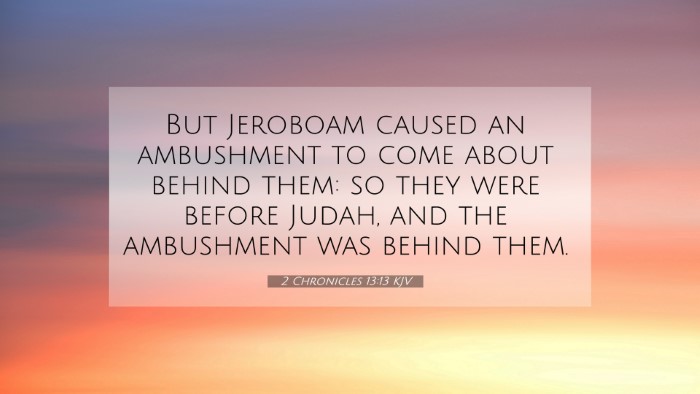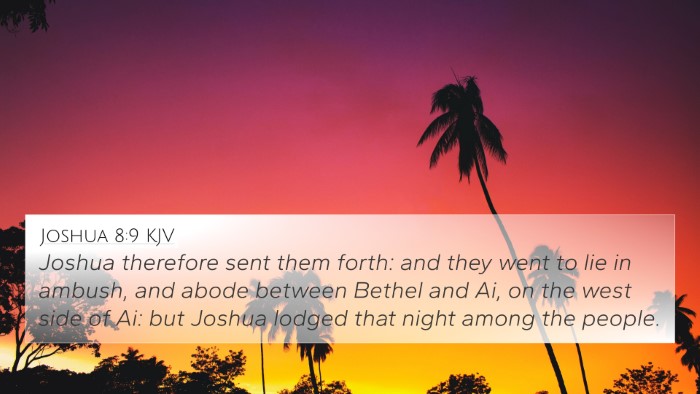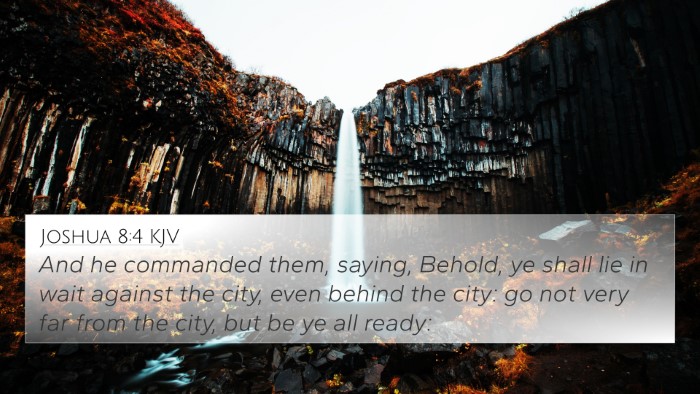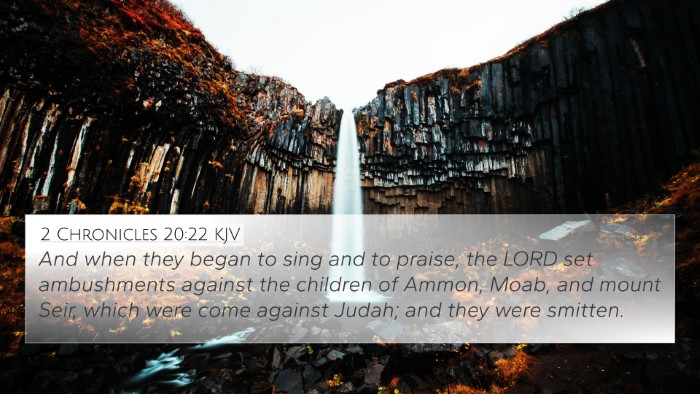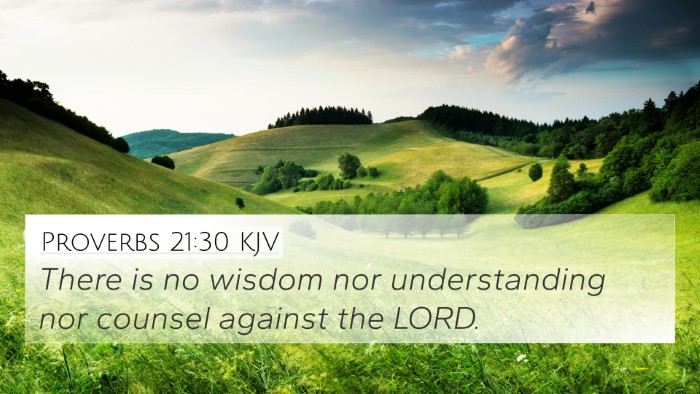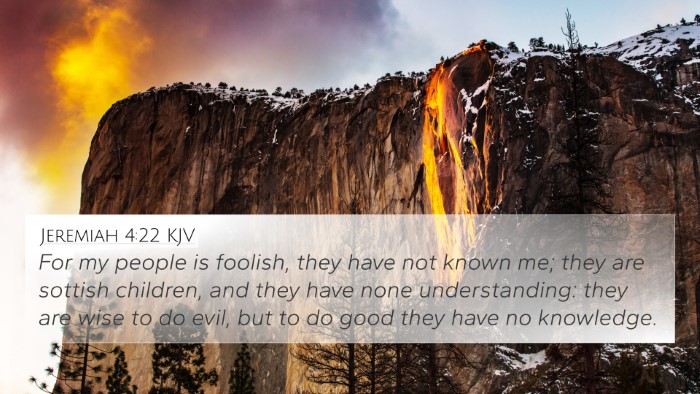Understanding 2 Chronicles 13:13
In the context of the Bible, 2 Chronicles 13:13 serves as a poignant reminder of the ongoing struggle for power and spiritual integrity within the kingdoms of Israel and Judah. This verse indicates the moment when Abijah, king of Judah, finds himself confronted by Jeroboam, the king of Israel, and highlights the critical themes of faith, destiny, and divine support.
Verse Context
The verse reads: "But Jeroboam had set an ambush around him, so that he was surrounded." This scene is set during a time of conflict between the two kingdoms, illustrating a pivotal battle that holds significant implications for both leaders and their followers. Jeroboam’s behind-the-scenes tactics contrasted with Abijah’s open challenge reflect the different strategies of these two kings and the spiritual underpinnings of their actions.
Biblical Interpretation
The essence of this verse, as noted in public domain commentaries, emphasizes:
- The Dilemma of Leadership: Abijah, although outnumbered and ambushed, stands firm in his belief and identity as the legitimate king of Judah, rooted in God's covenant.
- Divine Providence: Commentators like Matthew Henry focus on how God often supports those who remain faithful even amidst overwhelming adversity.
- Strategic Conflict: Jeroboam's ambush signifies the often-deceptive nature of political power struggles, reminding readers that appearances can be misleading.
Connections Between Bible Verses
This verse can be connected to several others throughout Scripture that echo similar themes of confrontation, leadership, and faith in God's support:
- 1 Kings 15:1-2 - This passage discusses the lineage of Abijah, establishing his rightful claim and divine anointing.
- 2 Chronicles 14:11 - An instance where faith in God leads to victory against superior odds, reinforcing the theme of divine support.
- 2 Chronicles 20:12 - Highlights the reliance on God in desperate times, echoing Abijah's circumstances.
- Psalms 37:25 - Emphasizes the righteous who will not be forsaken, aligning with Abijah’s faith.
- Isaiah 8:10 - A caution against conspiracies without God, similar to Jeroboam’s plans.
- Romans 8:31 - “If God be for us, who can be against us?” This aligns seamlessly with the core message of 2 Chronicles 13:13.
- Philippians 4:13 - A reminder that with faith, one can confront and overcome any challenge.
Thematic Bible Verse Connections
The narrative invites readers to explore deeper theological themes such as:
- Faith under Pressure: The potential for spiritual fortitude in the face of adversity.
- God’s Sovereignty: The assurance that God's plans prevail despite human schemes.
- The Validity of God’s Promises: The criticality of remembering God’s faithfulness through historical accounts and personal reflection.
Comparative Bible Verse Analysis
Engaging in cross-referencing biblical texts such as 2 Samuel 22:31 allows for comparative studies that uncover the broader narrative of God’s protection over His people. Tools for Bible cross-referencing aid in exploring these connections systematically.
Practical Insights for Cross-Referencing
Utilizing a Bible cross-reference guide helps in identifying how verses like 1 Samuel 12:16 correlate with the events surrounding Abijah and Jeroboam, particularly in understanding the nature of divine intervention and rightful leadership.
Concluding Thoughts
2 Chronicles 13:13 serves not only as a historical account but as a profound lesson for modern readers on the importance of faith and divine reliance amidst trials. By engaging in thorough cross-referencing, one can appreciate the intricate web of biblical narratives that enhance our understanding of God's unwavering support and justice throughout history.
Further Study Suggestions
For those wishing to delve deeper into the implications and connections of this verse, consider the following:
- Exploring Bible verses that relate to each other regarding faith during trials.
- Participating in cross-referencing Bible study methods for a comprehensive understanding of the text.
- Investigating how the themes of old and new testament connections shed light on God's consistent character.
